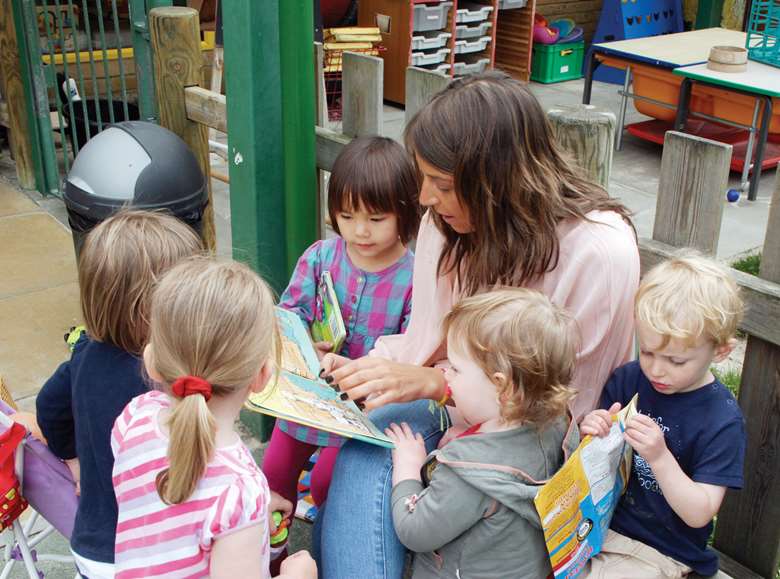Childcare leaders reject 30-hour funding plans
Jess Brown
Thursday, September 22, 2016
Early years groups have warned that government plans to offer 30 hours a week of free childcare from next year will only work if nurseries are allowed to levy charges on parents for using the entitlement.

In their responses to the consultation on government plans to reform childcare funding, which closed today, early years organisations say the proposed increase in the hourly rates paid to providers to deliver the 30 hours will not offset losses under the scheme.
They are calling for the scheme - which will see three- and four-year-olds entitled to 30 hours of government-funded childcare each week from September 2017 - to be rebranded "funded" rather than "free" childcare because settings will only be able to provide it if they can charge parents.
Under the government's proposals published last month, a universal base rate would be introduced for all local authorities to fund nurseries for the 30 hours offer.
While the Department for Education has calculated that this would see three-quarters of councils gain funding, early years groups say the rates nurseries would receive under the system would be insufficient to provide the hours to parents at no cost.
Purnima Tanuku, chief executive of the National Day Nurseries Association (NDNA), said: "It's becoming clear that with tight public finances, investment is falling short and many nurseries will face bigger losses on free places that must be made up in parental fees elsewhere.
"Many nurseries are now looking towards paid-for essentials as the way forward, and NDNA is calling for a new clarity that funding is for childcare only and nothing else. Anything over and above a basic childcare offer should be chargeable."
Tanuku added that the 30 hours offer would only work if childcare providers are allowed flexibility in charging for "essential extras such as food, or additional activities such as language or dance sessions", and over when free hours can be used during the nursery day.
"Most children of working parents attend nursery for up to 10 hours each day. Nurseries could be allowed to offer, for example, seven funded hours per day and three paid-for at a more realistic rate," she said.
Neil Leitch, chief executive of the Pre-school Learning Alliance, said the government must "come clean" on the 30-hour offer.
"Either it needs to fund the offer properly, at a rate that ensures that neither parents nor providers have to incur any additional costs, or it needs to admit that the scheme is not free at all, but rather subsidised, and promote it to parents accordingly," Leitch said.
"For years, providers have been forced to scramble to find ways to stay afloat - setting higher fees for additional hours or younger children; charging high rates for optional extras; relying on volunteers and unpaid staff hours.
"Enough is enough. It's not the job of providers, or parents, to clean up the government's mess."
Liz Bayram, chief executive of the Professional Association for Childcare and Early Years, said settings need greater clarity on what they can charge parents for because the numbers "don't add up".
"The formula makes clear that settings delivering the 30 hours will be able to make additional charges for 'consumable' items but not for 'discretionary' items. This important provision is likely to make the difference between some settings delivering the free entitlement or not," Bayram said.
"Early implementers are already utilising this provision and it will be key to ensuring providers can sustain their businesses and deliver the entitlement.
"That said - this will ultimately mean that ‘free childcare' will not truly be free. Given the pressure on public finances, targeting funding at those disadvantaged children who would benefit the most - should be the priority."
Last week, the Family and Childcare Trust warned the government's proposals failed to target funding at areas with low take-up in free childcare.
A DfE spokeswoman said: "We are investing a record £6 billion per year in childcare by 2020, including £300m to increase the average funding rate paid to providers for our two, three and four-year-old offers.
"This, together with our proposed fairer funding approach, means the rates paid to the vast majority of providers are set to increase. These proposals were informed by the most comprehensive analysis of the childcare market ever conducted.
"We are clear that parents can be charged for discretionary items, such as food, or for trips - but this cannot be a condition of taking up a free place."




